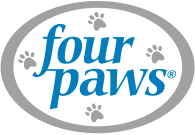How to Prevent Coprophagia in Dogs
As a pet parent, there’s a good chance you welcome your furry friend’s affectionate smooches on your face. But the second you catch your dog eating their own poop, those kisses can quickly lose their adorableness.
If your dog’s eating poop—clinically known as coprophagia—it may expose your furry friend to harmful internal parasites. Let’s learn why dogs eat poop and what you can do to manage this not-so-great (yet fairly common) behavior.
Why Do Dogs Eat Poop?
While the exact reasons aren't fully understood, several factors may contribute to your dog eating their own poop:
Maternal Influence - Mother dogs routinely eat their puppies’ feces until pups are about three weeks old, which helps keep the “den” clean and odor-free. It’s believed puppies may be copying a behavior they’ve noticed in their mothers.
Curiosity - Puppies explore the world through their mouths, and it’s possible they’re going through a phase where they eat anything with an interesting smell or texture.
Nutritional Value - Dogs are scavengers by nature, and feces probably still contain some residual nutrients. This can be especially appealing to dogs with dietary deficiencies.
Attention-Seeking - Another possible answer to “why do dogs eat poop” is simply that they’re looking for a reaction from their pet parent. Chances are it worked, but not in a positive way.
Habitual Behavior - While many dogs grow out of this habit, some may have a difficult time breaking it.
Medical Causes - In a few cases, there’s a medical reason to explain coprophagia in dogs:
- Exocrine pancreatic insufficiency (when the pancreas doesn’t produce enough enzymes to break down and absorb nutrients from food)
- Pancreatitis (inflammation of the pancreas)
- Certain malabsorption syndromes (when the body can’t absorb nutrients from food)
- Infections
- A high-fat diet
Why Do Dogs Eat Cat Poop?
Many dogs will eat cat poop if given the slightest chance, but for some dogs, it can grow into a daily behavior.
Dogs, especially those prone to coprophagia, are at risk of contracting Toxoplasmosis from cat feces. This is a parasitic infection that can cause serious health issues. Here’s how to minimize this risk if your dog’s eating cat poop:
Elevate the Litter Box - Place it in a location inaccessible to your dog, such as a high shelf or a room with a secure door.
Frequent Cleaning - Regularly clean the litter box to remove the temptation of cat feces.
Consult Your Veterinarian - If you're concerned about your dog's exposure to Toxoplasmosis, talk with your veterinarian for specific advice.

How to Stop Your Dog from Eating Poop
Now that you know the answer to “why does my dog eat poop?”, it’s time to start breaking the habit. Unfortunately, it can be a tough one to kick, but these steps help address it from a few different angles:
👀 Supervise Potty Breaks - Stay with your dog while they’re in the yard and clean up poop immediately to discourage the behavior. If possible, encourage them to “go” in the same area for consistency.
🐾 Related: What’s the Best Way to Clean up Dog Poop in the Yard?
🚫 Use Deterrent Products - Try supplements like Healthy Promise™ Potty Mouth Coprophagia Supplements, which are chewable tablets formulated to deter dogs from eating their own poop. You can also find products to sprinkle on your dog’s food to make their stool unappealing.
🗣️ Train with Commands - Teach your dog the "leave it" command just in case they grab any feces while you’re out for a walk.
🥄 Adjust Feeding Habits - Feed smaller, more frequent meals to prevent hunger-driven behaviors and provide quality, nutrient-rich food to ensure your dog’s receiving proper nutrition.
👍 Keep It Positive - Punishing or yelling at your dog for eating feces may only cause stress or confusion.
Here’s to a Clean Start!
Although coprophagia in dogs can be an unpleasant and baffling behavior, it's important to remember that it’s relatively common in dogs, especially young ones. With an understanding of why dogs eat poop in the first place, patience, and the right preventive measures, you can help your furry friend overcome this not-so-adorable habit and make those doggy kisses a lot more welcome!











